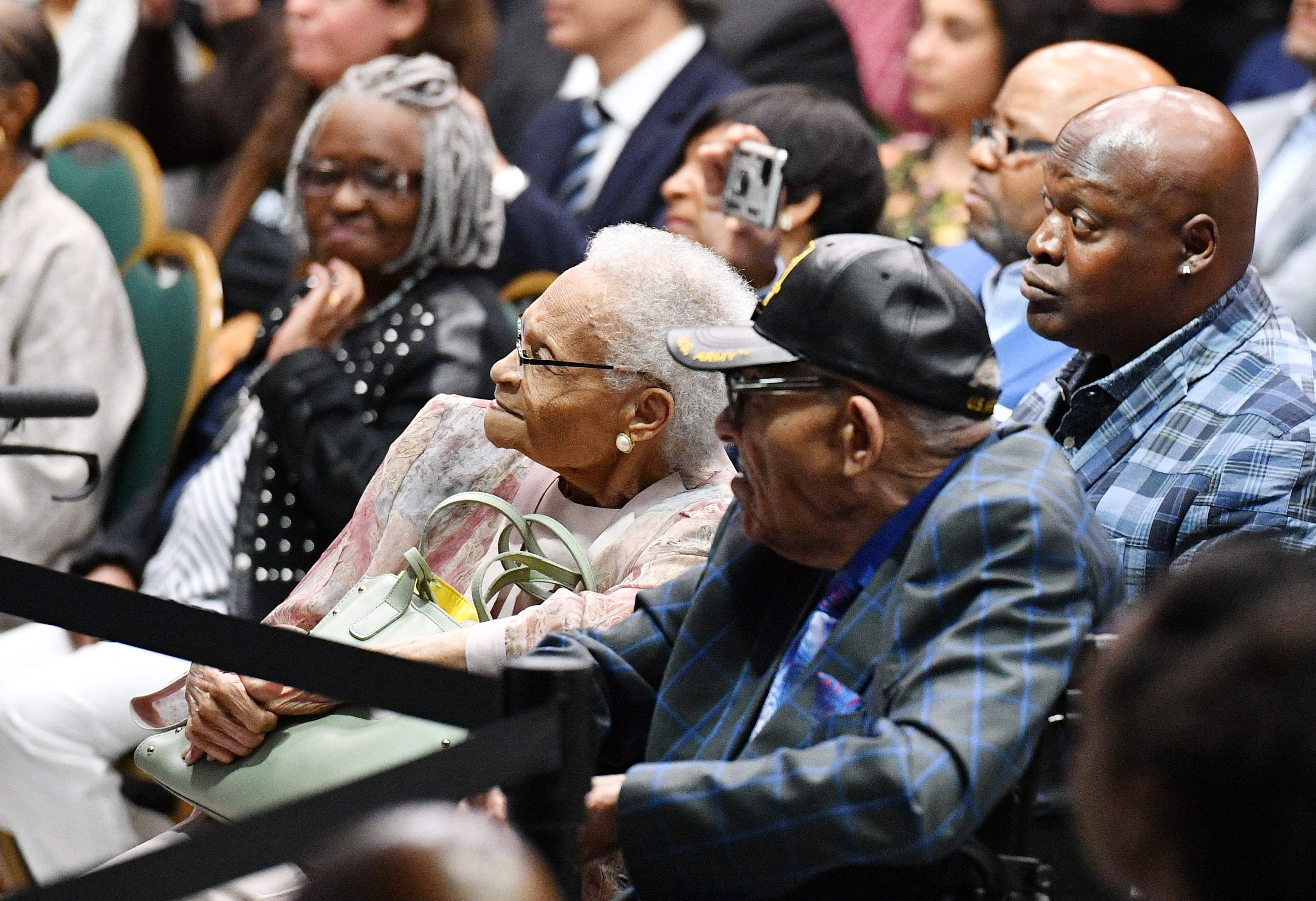‘This was not a riot, this was a massacre’: Biden calls on US to reckon with history of racist violence in Tulsa speech
As the first president in last century to commemorate racist massacre, Biden urges Americans to confront nation’s deeply embedded racism to begin to heal: ‘In silence, wounds deepen’
Your support helps us to tell the story
From reproductive rights to climate change to Big Tech, The Independent is on the ground when the story is developing. Whether it's investigating the financials of Elon Musk's pro-Trump PAC or producing our latest documentary, 'The A Word', which shines a light on the American women fighting for reproductive rights, we know how important it is to parse out the facts from the messaging.
At such a critical moment in US history, we need reporters on the ground. Your donation allows us to keep sending journalists to speak to both sides of the story.
The Independent is trusted by Americans across the entire political spectrum. And unlike many other quality news outlets, we choose not to lock Americans out of our reporting and analysis with paywalls. We believe quality journalism should be available to everyone, paid for by those who can afford it.
Your support makes all the difference.President Joe Biden has called for a national reckoning with America’s legacy of racist violence, as the president commemorated the 100th anniversary of the Tulsa race massacre, which was fuelled by a white mob that displaced thousands of Black residents and killed as many as 300 people.
“My fellow Americans, this was not a riot. This was a massacre,” he said following a moment of silence.
After decades in the shadows, the history of the massacre has been elevated to the White House, as Mr Biden becomes the first president to memorialise the atrocities from Tulsa within the last century.
He argued that the nation must reckon with its troubling past.
“We should know the good, the bad, everything,” he said in an address from Tulsa on 1 June. “That’s what great nations do. They come to terms with their dark sides.”
“In silence, wounds deepen,” he added. “As painful as it is, only in remembrance do wounds heal. We just have to choose to remember. Memorialise what happened here in Tulsa so it can’t be erased.”
He added that the nation cannot simply “bury pain and trauma forever”.
“At some point, there will be a reckoning, an inflection point,” he said.
His remarks followed his meeting with the three remaining known survivors of the massacre, which destroyed 35 blocks of a flourishing Black neighbourhood of Greenwood, marking one of the bloodiest episodes of racist violence in the US.

On 31 May, 1921, a white mob deputised by law enforcement and supported by city officials indiscriminately fired on Black residents, as airplanes dropped flaming turpentine-soaked rags and dynamite, after a Black teenager was accused of assaulting a white elevator operator.
The history of that violence was “a story seen in the mirror dimly, but no longer,” Mr Biden said. “Now your story will be known in full view.”
“For much too long the history of what took place here took place in silence,” he added. “While darkness can hide much, it erases nothing ... And so it is here, only with the truth, can come healing, justice and repair. That isn’t enough.”
Before his remarks, the president spoke with 107-year-old Viola “Mother” Fletcher, 100-year-old Hughes “Uncle Red” Van Ellis and 106-year-old Lessie Benningfield “Mother” Randle, all of whom testified to members of Congress last month and urged lawmakers to consider reparations for the survivors and their families, stripped of decades of generational wealth.
They are also the lead plaintiffs in a reparations lawsuit against the city and county of Tulsa, the state of Oklahoma and Tulsa’s Chamber of Commerce, arguing that the state and its economic centre are responsible for the massacre and its ongoing impacts.
Mr Biden said that the massacre was not just about the loss of life, “but loss of living.”
The systemic violence that followed in the decades after the attack continues to resonate not just in Tulsa but across the US, from the impacts of redlining, exclusionary zoning laws, “urban development” initiatives and other forms of housing discrimination, as well as the construction of federal highways through Black communities, including in Greenwood.
Earlier on Tuesday, the White House announced a new set of policies to close the white-Black wealth gap in the US in an effort to combat those policies and the institutional racism that enshrined them.
The Ku Klux Klan’s “burning crosses torched every region in this country,” Mr Biden said in his remarks.
“That hate became embedded, systemically, in our laws and our culture,” he said. “We do ourselves no favours by pretending this didn’t happen ... or didn’t impact us today.”
The administration is taking aim at addressing disparities in home ownership and appraisals, and will lean on the federal government’s purchasing power to expand federal contracting with small disadvantaged businesses.
Mr Biden also will propose billions of dollars for a community revitalisation fund targeting infrastructure, public spaces and public transit, among other proposals.
The president also threaded the nation’s history of white violence to the failed insurrection at the US Capitol on 6 January and the 2017 “Unite the Right” rally in Charlottesville, Virginia, where neo-Nazis and other far-right hate groups converged.
Mr Biden said one of the survivors of the Tulsa massacre told him that the Capitol riots “reminded her of what happened here in Greenwood 100 years ago.”




Join our commenting forum
Join thought-provoking conversations, follow other Independent readers and see their replies
Comments